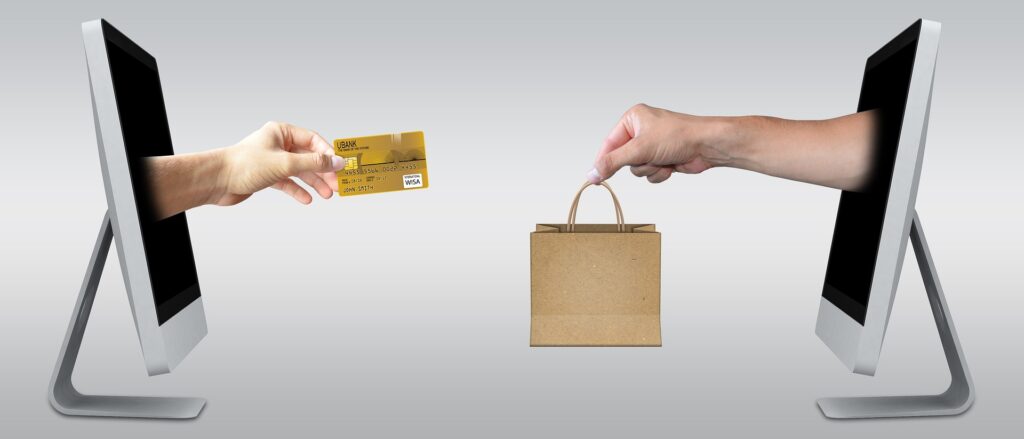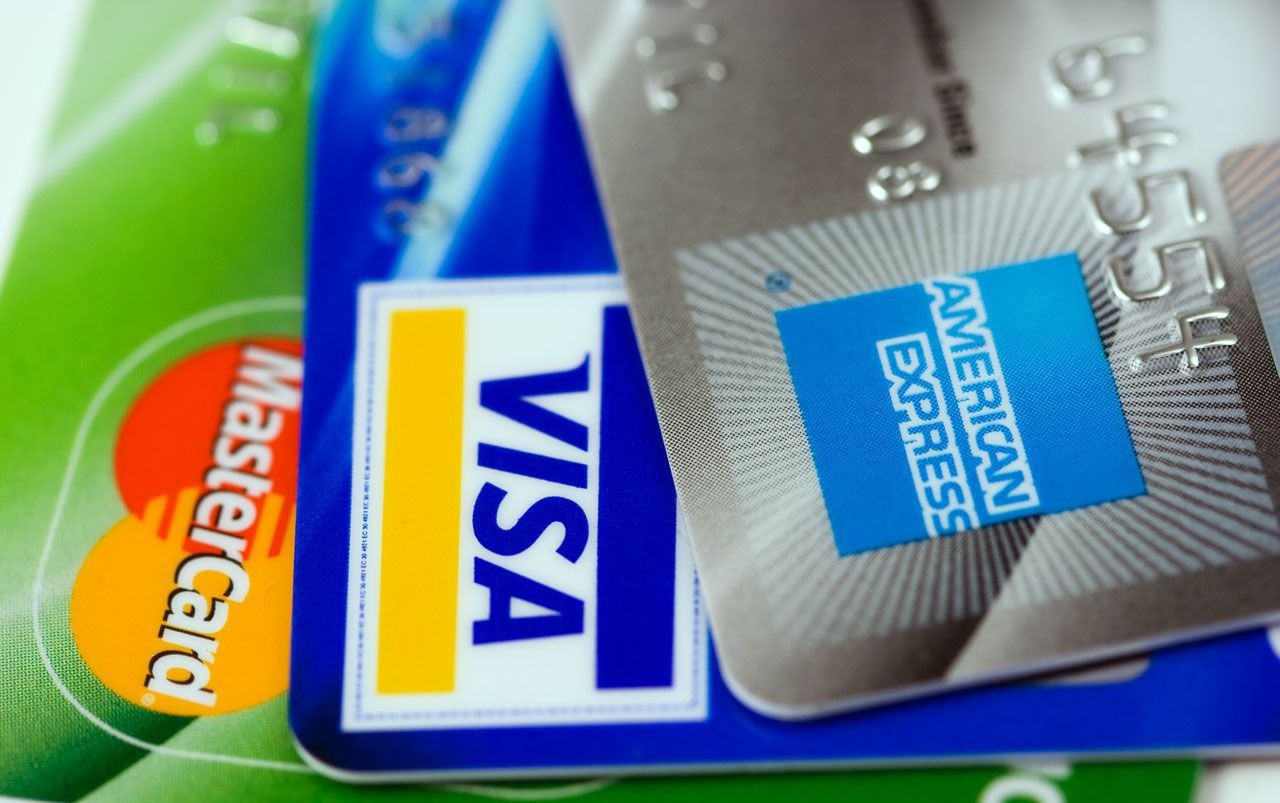Do you have a credit card but find using it to be too burdensome? It’s not just you! Understanding how to responsibly utilise your credit card and stay out of debt might be challenging. But you may take benefit of using your credit card if you have the correct methods and self-control. You’ll learn how to make the most of your credit card without getting into debt in this blog post.
Get a credit card with no annual fee
It’s crucial to look for a credit card that doesn’t impose an annual fee when you’re thinking about getting a new credit card. When using a credit card, annual fees can make a big difference in whether you make money or lose it. In order to get the greatest deal, browse around for credit cards that don’t charge an annual fee.
Be mindful of any additional fees connected to your card, such as late payment or balance transfer fees. Additionally, confirm that you are aware of the interest rate that will be applied. If you can pay off the bill in full each month, look for credit cards with low or even nil interest rates.
Additionally, some cards may offer rewards for using the card for everyday purchases. These rewards can include cash back, airline miles, discounts on products, or other perks. Make sure to compare the rewards offered to make sure the benefits outweigh the costs of the card. Don’t be afraid to shop around when considering which credit cards are right for you – different companies offer varying levels of interest rates and perks so be sure to compare them before settling on just one.
In short, getting a credit card with no annual fee is crucial to responsibly utilising credit, to put it briefly. Make sure you shop around before choosing a card to ensure you receive the best offer and are aware of all fees involved.
Use your credit card for everyday purchases
Use of your credit card for routine purchases is one of the simplest ways to ensure that you manage your finances. Keeping track of your spending and ensuring that you are only making purchases you can afford to pay back is made easier when using a credit card.
Make sure you’re choosing wisely while using your credit card for regular transactions. Avoid impulsive purchases, and make an effort to keep your monthly spending to a minimum. To avoid accruing interest or late fees, be sure to pay off your balance completely each month. Pay close attention to any unique incentives that can end up saving you money over time, such as cash back rewards. In order to take advantage of any prospective discounts, always look for any special deals being offered by stores before making a purchase.
Pay attention to how often you use your credit card for routine purchases as well. Be cautious to maintain a low credit utilisation rate. This means that you should keep your spending within the range of 30% of your total credit limit. By doing this, you may maintain a high credit score and make sure that you aren’t taking on too much debt.
If you intend to use your credit card while travelling overseas, check the expenses associated with foreign transactions beforehand. These expenses are quite easy to accumulate, so you can end up spending more than you had planned.

Pay off your balance in full each month
Confirm that each month you pay off the entire outstanding balance on your credit card. In doing so, you can help avoid paying interest charges and maintain your credit score high.
By paying off the debt in full each month, you can stay within your budget. By avoiding interest charges, you may ensure that your finances are in order and keep more of your money.
You have the choice of sending money from one bank account to another or making monthly payments online. Make sure to regularly monitor your bill to ensure that your payment is received before the given deadline.
You can prevent interest costs and maintain good financial health by paying off your debt in full each month. Knowing how much you can spend using your credit card each month is also crucial. Setting limitations for yourself helps you avoid overspending, which could lead to significant financial issues in the future. Additionally, it could be a good idea to avoid carrying about sizable amounts of available credit altogether if you suspect that you might have trouble regulating your urges when it comes to making purchases.
Be careful to get in touch with your credit card provider as soon as you realise you won’t be able to pay a bill on time to discuss your choices.
Sign up for automatic payments
To make sure you never forget a payment due date, consider setting up automatic payments. You can select a regular payment amount that will be deducted from your bank account each month by enrolling in automatic payments. This helps avoid late fees or penalties and guarantees that you don’t miss any payments. Additionally, it aids in preserving a high credit score and a low credit utilisation rate.
Log into your credit card account online and look for the option to set up a recurring payment if you want to set up automatic payments. The amount, due date, and mode of payment are often your choice. To verify that your payments are being paid appropriately and on schedule, be sure to regularly review your statements.
One simple and practical strategy to guarantee that your bills are paid on time is to set up automated payments on your credit card. Additionally, it’s a fantastic technique to help you manage your money and keep your credit use low. An easy action that can have a big impact on how intelligently you use your credit card is signing up for automated payments.
Keep your credit utilization low
Having a high credit usage ratio refers to using an excessive amount of your allotted credit line. Your credit score may be impacted by this percentage. Try to maintain your credit utilisation rate under 30%.
It’s crucial to keep in mind that a sizable purchase might still have an impact on your credit usage ratio even if you pay off your amount in full each month. You might want to think about making more regular payments throughout the month or contacting your credit card issuer to request a higher credit limit in order to lessen the impact of any significant expenditures.
When using numerous cards, it’s important to keep track of how much debt is on each one. Generally speaking, it is preferable to pay off the card with the highest debt first before moving on to the others. If you are able to pay more than the minimal amount due, you’ll contribute to keeping your credit utilisation low, which will gradually improve your credit score.
By paying your bills on time, keeping your balances low, and avoiding making numerous card applications at once, you may manage your credit usage. Knowing how much of your available credit you are using will help you maintain a good credit score.
Review your statements regularly
Staying on top of your credit card statements is one of the best ways to ensure you’re using your credit card wisely. Reviewing your statements regularly helps you keep track of your spending and spot any mistakes or suspicious charges.
Set aside some time each month to review your statements. Start by reviewing the total amount you’ve charged and make sure it matches what you expected. Then, go through each individual transaction to confirm the details are correct. If you see a charge you don’t recognize or remember, contact the vendor to investigate further.
Checking your statements also gives you the opportunity to double check that your payments were processed correctly and that your account balance is accurate. In addition, reviewing your statements can help you identify any fraudulent activity on your account as soon as possible. You should also check for any unexpected fees that have been applied to your account. These fees can include late payment fees, annual fees, and more. By keeping an eye on your statement, you can catch any of these fees early and potentially avoid them in the future.
Finally, if you’re taking advantage of a rewards program, it’s important to review your statements and make sure your points are credited correctly.
By taking the time to review your credit card statements regularly, you can help ensure that you’re using your credit card responsibly and staying on top of your finances.
Only use your credit card when you can afford to pay it off
Using a credit card can be a great way to manage your finances and build your credit, but it can also put you in a dangerous financial situation if you don’t use it responsibly. One of the key rules of credit card use is only charging what you can afford to pay off. Not being able to pay off your balance in full each month can have long-term consequences such as paying interest and fees that can significantly increase your overall debt.
Credit cards offer numerous benefits, but the most important rule is to only use it when you know you can afford to pay it off in full. This means you should always consider the item you are buying and make sure that it fits into your monthly budget and is something you truly need. If you can’t pay it off in full, then you shouldn’t charge it to your card.
Another important rule is to only spend as much as you can pay off. Many people think that because they have a credit limit, they can spend up to that limit without consequence. This is not true. You should always keep your credit utilization low, meaning the amount you owe should never exceed more than 30% of your total available credit limit. If you’re consistently spending more than you can pay back, it will eventually catch up with you.
Using a credit card wisely and responsibly can be a great way to manage your finances, as long as you remember to only use your credit card when you know you can afford to pay it off in full.
Don’t use your credit card for cash advances
Cash advances are transactions in which you borrow money against your credit card. This type of transaction is not recommended as it carries hefty fees and an astronomical APR (Annual Percentage Rate). Additionally, cash advances do not count toward any of your credit card rewards or bonuses. When you take out a cash advance, you will be charged a fee that is usually between 3% and 5% of the transaction.
The APR for cash advances can be much higher than the APR for regular purchases, so you should be prepared to pay a large amount of interest if you choose to use a cash advance.
It is important to note that cash advances also do not have a grace period like regular purchases. This means that interest starts accruing on the balance immediately and you will be responsible for paying that interest in addition to the principal amount borrowed.
Overall, it is best to avoid taking out cash advances whenever possible. If you are in need of money, there are better options such as taking out a personal loan, asking for a raise, or looking for freelance work. These options may help you avoid taking out a high-interest cash advance and will ensure that you are not putting yourself in financial trouble.

Don’t let your credit card information fall into the wrong hands
It’s important to be careful with your credit card information. Your credit card information is sensitive and can be used to make fraudulent purchases. To protect yourself from this kind of theft, always make sure that you keep your credit card information safe and secure.
First, never give out your credit card number or any other personal information over the phone unless you are making a purchase or providing it to a trusted source. It’s also important to be aware of online scams, as they may ask you for your credit card number to confirm your identity. Never share your information with anyone you don’t know or trust.
You should also avoid giving out your credit card number in public places, such as at a restaurant or store. If someone does ask for your card number, make sure they provide you with a secure payment processing system that has fraud protection and encryption measures in place.
Finally, make sure you keep an eye on your credit card statements. Look for any suspicious activity and report it to your bank or credit card provider right away. By doing this, you can help protect yourself from credit card fraud.




